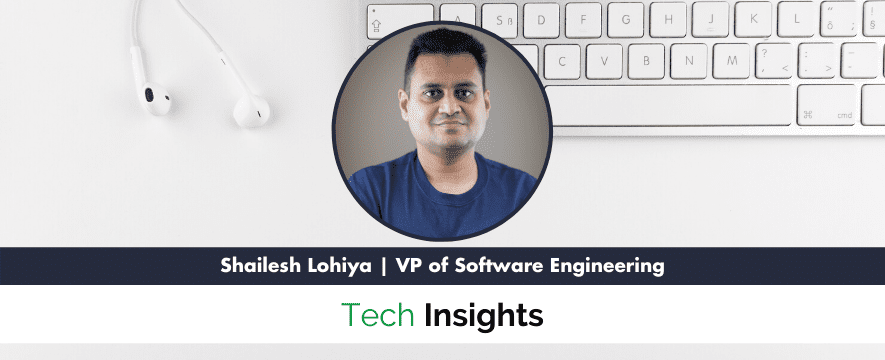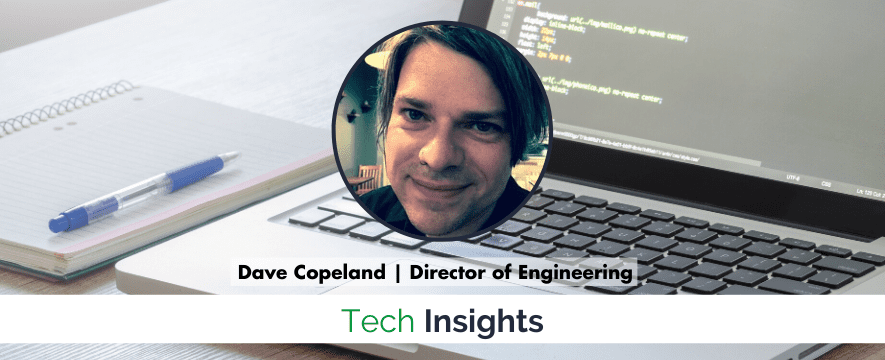Product companies and engineers are making their way into the DMV tech arena. We spoke with VP of Software Engineering at VBrick to get some insight on what it really means to work at a product company, with a focus on the security realm.
VBrick is a cloud-based enterprise video management software product company. As a startup, they stay up to date with cutting edge technology like machine learning, AI, and serverless.
We interviewed Shailesh Lohiya, VP of Software Engineering, to hear about his experience working in a product company. We learned about the type of work that the company does, and how it differs from the services work more common to this area.
Shailesh emphasized the importance of engraining scalability and security features into the foundation of a product, especially in the time of COVID-19 when almost all our interactions are digital.
The conversation below has been edited for length and content.
Product companies are always looking towards the newest and most innovative technologies. Can you talk a little bit about the technology behind VBrick and what the tech stack looks like?
VBrick is a cloud-based product. We use AWS as our cloud provider, and services such as CloudFront and S3 are utilized in our platform. We also use AI recognition for transcriptions and translations for video to audio to text. Internally, we use different languages for this and it’s a microservices based architecture. We use NodeJS, C# and lots of lambda functions from AWS.
Our business is based on who’s doing events at what time, so we do auto-scaling.
Say there’s an event that’s going on for an entire company with upwards of 30,000 people attending the event. With so many people logging in, it requires a lot of scale. That’s why we use scaling technologies for the cloud, like Cloud Elasticity and Docker for Amazon ECS. As for databases, we use MongoDB and Elasticsearch. On the front end we use Angular and a little bit of React.
Security is a very important topic, and something we see a lot of companies in this area focused on. How is VBrick integrating security into the technology?
Security is definitely not an afterthought. We have to take security very seriously because we cater to a lot of big enterprises and different federal government agencies. Security is inbuilt. We add securities in every time we develop a new feature, service, or module.
We use a third-party auditing firm that comes in and breaks up an application, in terms of security pen testing, so vulnerabilities they find can be quickly addressed. We have Service-Level Agreements with many of these big companies and have to be meticulous in checking everything.
In terms of how VBrick does security for our platform, it’s given end to end encryption. When a request is initiated by a user, or a user is watching or going to our application, it is all encrypted. Everything is authorized, which means it involves building permissions, granular permissions, and goal-based systems
Covid-19 has impacted almost every aspect of our lives, especially how we are interacting with different technologies such as video streaming. Have there been any challenges or roadblocks that VBrick has faced since Covid-19?
Yes, we have had to scale very quickly. For instance, we use an ECDN product that makes it possible for 20,000 employees working in one building to watch a CEO’s townhall at the same time. The ECDN prevents the network from crashing because we have a couple cache appliances that sit in the building. What that caching does is go to the internet to get the live stream, and then locally delivers that stream to all the employees in that building so they all don’t have to go to the internet to get the stream.
With Covid-19, the situation has changed. Everybody is working from home, so they’re not using the caching appliance that’s in the office. Now we are relying on public CDN or internet-based Akamai and CloudFront. We are working with CloudFront and Akamai to get that scale up for our use case. That’s one area where we’ve had to pivot.
What are some of the selling points being an engineer or working on the product teams at VBrick? What is it that you communicate to engineers that makes the company such a unique environment?
We stay up to date with new technology. Engineers always like to work on new stuff with the latest technologies. There is also no top down approach in the engineering team here at VBrick. Everybody’s ideas are welcome. If you have a new technology that solves a business problem more efficiently, please bring it to the team. We then discuss it, and if it makes sense, implement it.
The other thing is we are cloud based, so our innovation pace is really high. We do CI and CD process with lots of features on a release, so it’s very fast moving. The engineering team is using cutting edge technology for AI recognition, efficiency recognition, and object recognition. No one else in our industry does that. In the video management industry, we are one of the top innovators and leaders. It’s very agile, and the company creates a flexible yet fast-paced environment.
How do you explain the type of engineer you look for?
We preferably look for a computer science background. But if somebody does not have a computer science degree, they should have experience working for a software product company. It’s very difficult, especially in this area, to find product engineers. There’s lots of application development and services engineers, but we are typically looking for product engineers.
We try not to look at it by who knows an array of specific programming languages. We look at it holistically. We prefer somebody who knows one or two languages, but who has mastered them – even if it’s not a language we’re using. In our company we value that a person is good at what he/she does, their attitude, and their ability to learn anything.
We invest in our employees. We don’t expect the employee to be productive for probably the first two months. We give them time to get used to the product and the tech stack. VBrick pairs new engineers with a buddy who helps them learn and slowly ramp up on the product, our frameworks, and our process. We are hiring for the long term. Because of our company culture, we don’t see a lot of turnover from our engineers. People who come in are very happy with the culture and with the work they’re doing. Plus, we’re very competitive in terms of salary options, stock options and things like that.





